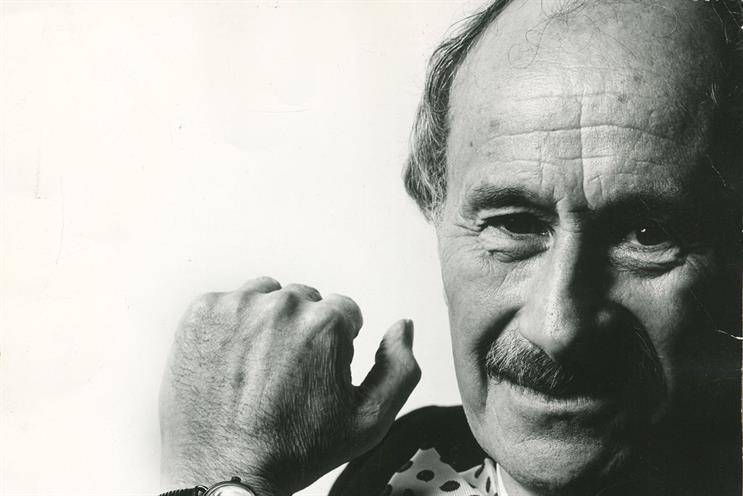I am proud to have been David Bernstein’s straight man.
I had joined The Creative Business in 1980 to set up a planning department and I was soon immersed in David’s unique credentials patter. Introducing our line-up to senior clients in the Neal Street boardroom, David would say, "I’m creative", and pointing to Laurence, his partner, "He’s business", and then looking at me, "And oh, he’s limited". It always got a laugh and set the tone for some memorable new-business meetings.
Working for David was never limited in any sense, but rather a wonderful mix of marketing and stand-up comedy, of smart management consultancy and improve, of high culture and low music hall.
David was the presenter’s presenter and his opening stich remains as fresh today as when I heard it for the first time:
"Hello, my name is David Bernstein, MA FRSA – that’s a funny way of spelling Bernstein. It gives me great pleasure [pause] and no money to be with you this evening…."
But David was much more than the drole Minister of Pun. David knew everyone, including Ronnie Kirkwood who popped up in his anecdotes like a long-lost friend even though I never actually met him in real life.
As one of adland’s great creative directors (McCann, Ogilvy) he won all the glittering prizes and wrote some world-class lines (The Esso sign means happy motoring). He was also one of the outdoor industry’s biggest advocates, making a series of well-respected films and masterminding a notable conference in Nice.
As an entrepreneur, he was one of the great challengers of the industry and founded The Creative Business, whose media neutral philosophy was years ahead of its time. He was very proud of the agency’s core belief that an understanding of the problem should dictate its solution.
But above all, David was a great writer who wrote with an elegance and wit that was always delivered with a fine command of rhythm and timing. Creative Advertising (Longman, 1974) remains one of the most readable texts on the art of business persuasion. Later in his career, David developed a fascination with corporate reputation and his book Corporate Image and Reality (Holt, Rinehart and Winston, 1984) became the essential primer of corporate communications. As usual, David had a great way with rhetorical hairpins:
"Product brands take minimum differences and set out to magnify them. It’s a shame that corporate brands too often take large differences and end up minifying them."
As I can attest, David was a marvellous teacher and had a knack for making even the most difficult subjects accessible and fun. He loved mnemonics. In evaluating creative work, David said there were four things to look for:
1. Visibility
2. Identity
3. Promise
4. Simplicity
He called this his "Vips" model, which he explained gave you "Spiv" when spelt backwards.
David Bernstein is one of the giants of British advertising and was awarded the Mackintosh Medal in 1982. His last great service was as a tireless supporter and trustee of the History of Advertising Trust.
The boy from Stoke Newington, who was as old as Mickey Mouse, inspired a whole generation of businesspeople to be more creative, and I’m so proud to be one of them.
His was and is a highly distinctive brand – which reminds me of one other classic Bernstein routine:
Looking at a rough ad, David would ask with just a hint of a wicked glint: "Is brand evident?", and while the team were formulating a response, smiling, he would add: "Which is, as I’m sure you have know, an anagram of David Bernstein. Boom! Boom!"
Paul Christopher Walton is the founder of The Value Engineers and former planning director of The Creative Business.


